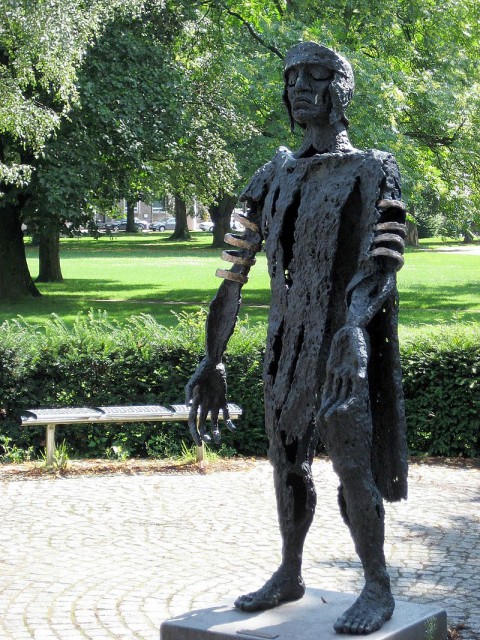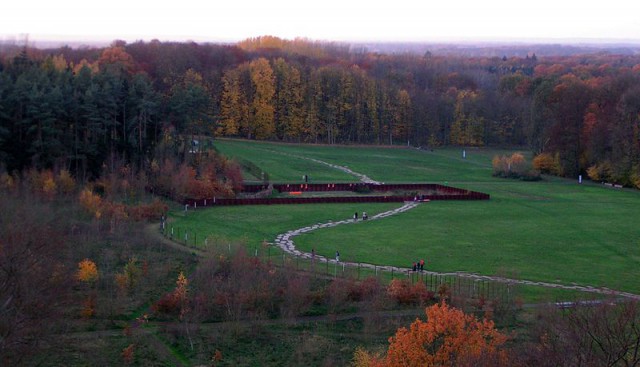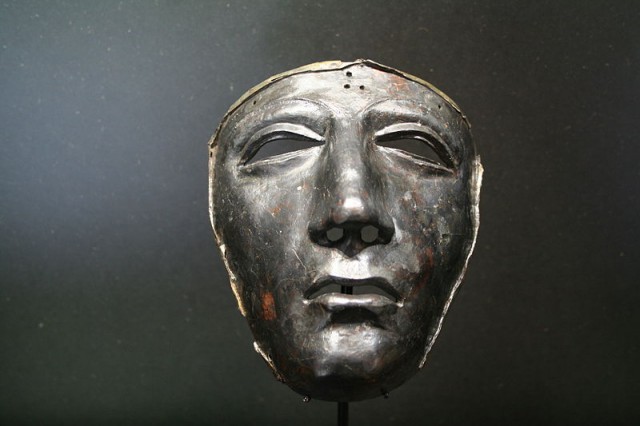Varus was crushed. His feet and hands and mind were numb with the freezing rain. His legions, so splendid and untouchable only days before, were in tatters. The broken remnants of his glorious army were gathered around him with the great hill at their back, facing a crude wall of raw earth.
He had given the order to storm the wall and had sent his most hardened soldiers in the van of the attempt. There was no hope for any of them; he knew, if these men could not break through.
It was the third day since the whistle and thud of the enemy’s javelins had signalled the beginning of the ambush. The rain had been falling then, too, and Varus had been riding in the center of his great host, surrounded by his staff. The host was many thousands strong, and he had suspected no danger. His reputation preceded him, he knew. The name of Varus was feared in this land.
The night before the march Varus’ trusted advisor and humble vassal, a Germanic noble named Arminius, had warned him of a local uprising to the north-west of his position. Varus had made his decision quickly. He was to move his men and their many hangers-on to their winter quarters without delay, and the crushing of a local rebellion would be no bad thing for an army which would shortly be faced with months of inactivity.
Give them some booty to play with, some stories to tell. Many of his men were inexperienced, and a short, sharp fight before their rest would do them no harm. Arminius was a good and loyal man, at least as much as was possible considering his barbarian heritage. He had been educated in Rome, and spoke well, dressed well and observed all the proper forms. Arminius knew the surrounding countryside well and had no difficulty directing Varus in the path the army should take.
There was no time to lose, Arminius had declared, and the road through the great forest would bring Varus to his goal quickly, and without taking him too much out of his way. He had given the orders for an early march.
Varus would have been pleased to retire to bed, but he was interrupted by another German, and older man, the father of Arminius’ wife. There was no love lost between these two; Varus knew, but the old man had gone too far this time. He claimed that Arminius would betray Varus during the march, that Varus would be hemmed in a narrow place, and that the well-spoken, Roman-educated Arminius had secretly raised an army to defy the rule of the Emperor in Rome.

The very thought of an alliance of the subjugated Germanic tribes was preposterous. Arminius was a trusted and loyal subject of Rome, and the fear of Varus’ name went before him. It was true that now and then a small rebellion, like the one he would crush tomorrow, would arise, but the thought of an alliance which could challenge the might of three legions under the command of General Quinctillius Varus… there was no merit in the suggestion. Varus had the man removed, and went to his rest.
The conversation floated through his mind as he peered through the gloom at the last ditch attempt by his heavy infantry to take the wall. It was hard to see what was going on, but over the hiss of the rain he could hear the grunts of men and the thud and crack of impact. He was soaked through and heavy, layers of wet leather and sodden wool topped with iron mail. He crouched and crept forward toward the fighting, and his small unit of veterans moved with him.
Even here, among the utter ruin of his vanity, and facing total defeat, he was filled with a grim pride. Three days they had held, and in the most disadvantageous circumstances imaginable. The Barbarians had thrown a seemingly endless number of warriors at his army, and they had died, only to be replaced by yet more. Bearded, painted, stinking and roaring, they seemed to Varus more beasts than men. By sheer weight of numbers Varus’ forces had been whittled down, and the German morale maintained only by the Legion’s disorganised position.
Even now, at the last desperate gasp, the discipline of the heavy infantry was efficient and brutal, wonderful to behold.
This was what Rome was. The training, the efficiency – Varus gloried in it. Watching, he felt that it was beautiful in its way. His legionaries had buried the wall in the corpses of their enemies. They could not take the barrier, and as he watched their attack turned into a tight defense. A fresh wave of warriors sprang over the wall with a yell, accompanied by a barrage of rocks and javelins. The Roman infantry closed ranks and took a step back.
The end was near. Behind him, there was a scream of horses. Three men had peeled off from their unit and galloped madly away, back toward the road. At the same moment, the defense at the wall disintegrated and was overrun. Varus had held the remainder of his forces back from the wall, and they clustered together, a waterlogged and exhausted band numbering less that three hundred on foot, and less than a hundred were mounted.

The dawn began to break, and the rain lessened at last. Through the gap where the last fight had taken place came the enemy, pouring like a river through a broken dam. Their cavalry thundered onto the open ground, crashing into the remaining foot soldiers. A small group pursued those who had fled, meeting them with a rattle of spears some way off.
As the pale dawn broke, Varus beheld the totality of his defeat. Countless warriors were filling up the field around him, between the hill and the forest. Varus turned to the man beside him. There were only a few moments left.

They met each other’s eyes and saluted smartly, then turned to face the approaching tide. And there he was: the well-spoken, well-educated vassal, Arminius, walking forward at the head of his victorious army. He saw Varus, and his smile was dreadful to behold. He pointed Varus out to the men around him, and with a yell began to charge toward him. Varus took a breath and made his decision. There was no other escape left. He lifted his short-bladed sword, found the soft spot below his ribs and plunged the blade upward.
This battle cost Rome three entire legions and came to be known in Rome as the Varian disaster. It signaled a turning point in the story of Rome’s conquest of Ancient Germany – though many more battles were fought in Germania the Battle of the Teutoburg Forest spelled the end of Roman expansion into northern Europe.
